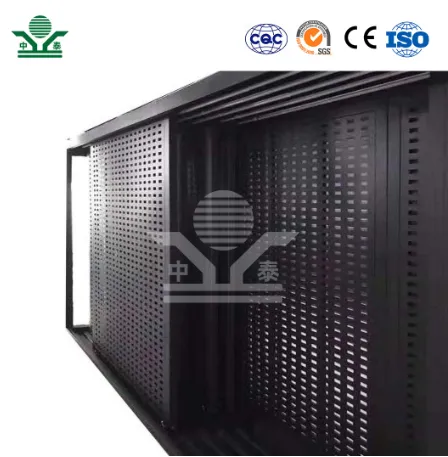Weatherproof Sound Barriers A Solution for Peace and Comfort
In today’s bustling world, noise pollution has become a significant issue affecting both urban and suburban areas. As populations grow and urban development continues, the clash of sounds from traffic, construction, and daily activities can lead to increased stress and diminished quality of life. One of the most effective solutions to combat this issue is the implementation of weatherproof sound barriers. These structures not only reduce noise but also withstand the elements, ensuring long-lasting performance and maintaining their aesthetic appeal.
What are Weatherproof Sound Barriers?
Weatherproof sound barriers are specialized structures designed to mitigate noise pollution in various environments, particularly near highways, railroads, and industrial zones. These barriers are constructed from high-density materials like concrete, metal, or specially engineered composites that are designed to absorb and deflect sound waves. In addition to their acoustic properties, what sets weatherproof sound barriers apart is their ability to withstand harsh weather conditions, including rain, snow, wind, and extreme temperatures. This durability ensures that they remain effective over time, providing ongoing noise reduction.
Benefits of Weatherproof Sound Barriers
1. Noise Reduction The primary function of these barriers is to reduce noise levels in designated areas. Studies have shown that properly designed sound barriers can lower noise levels by up to 10 decibels, significantly improving the auditory environment for residents and workers nearby.
2. Durability Weatherproof sound barriers are built to resist the wear and tear caused by environmental conditions. They do not warp, crack, or degrade easily, unlike traditional wooden fences or barriers that may require frequent repairs or replacement.
weatherproof sound barrier

3. Aesthetic Flexibility Modern sound barriers come in a variety of designs, colors, and finishes. This allows them to blend seamlessly into their surroundings rather than being an eyesore. Some are even designed to include green elements—such as planters or climbing vegetation—that can enhance the visual appeal while further improving noise absorption.
4. Safety Benefits By mitigating noise pollution, weatherproof sound barriers can also contribute to safety. Reducing noise can minimize distractions for drivers and enhance concentration for people working or living near busy areas. This reduction in distraction can lead to fewer accidents and a more peaceful environment.
5. Environmental Benefits In addition to noise reduction, these barriers can positively affect biodiversity. In rural or semi-urban areas, well-placed sound barriers can serve as wildlife corridors or as structures for supporting native plants, promoting ecological health.
Installation and Maintenance
The installation of weatherproof sound barriers requires careful planning and execution. Factors such as local zoning laws, the type of traffic or noise source, and the characteristics of the surrounding area all play critical roles in determining the design and placement of barriers. Once installed, these structures generally require minimal maintenance, primarily needing occasional inspections to ensure structural integrity and cleanliness.
Conclusion
Weatherproof sound barriers represent a powerful tool in the fight against noise pollution, offering numerous benefits that extend beyond simply reducing sound levels. They enhance the quality of life for communities by creating more serene environments, safeguarding wildlife, and standing resilient against the elements. As urban areas continue to expand and the demand for peace and quiet in a noisy world increases, the need for effective solutions like weatherproof sound barriers is more critical than ever. Investing in such technologies not only fosters tranquility but also supports a sustainable future where urban development and environmental stewardship go hand in hand.
-
Why Galvanized Trench Cover Steel Grating Resists Corrosion
NewsJul.10,2025
-
The Versatility and Strength of Stainless Expanded Metal Mesh
NewsJul.10,2025
-
Load Calculations in Steel Grating Platforms
NewsJul.10,2025
-
Keeping Pets and Kids Safe with Chicken Wire Deck Railing
NewsJul.10,2025
-
Hole Diameter and Pitch for Round Perforated Metal Sheets
NewsJul.10,2025
-
Aluminium Diamond Mesh in Modern Architecture
NewsJul.10,2025
Subscribe now!
Stay up to date with the latest on Fry Steeland industry news.

